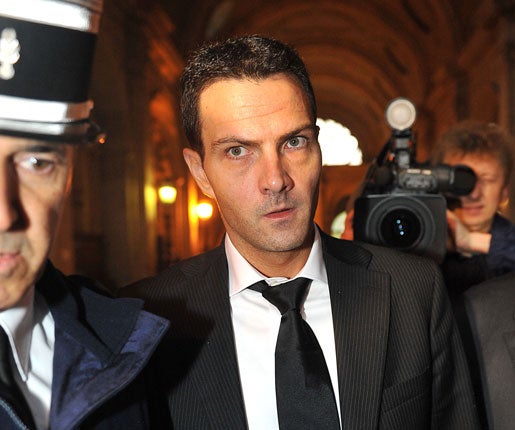James Moore: No, we shouldn't move on: UBS is the latest bank to let former execs off the hook

Your support helps us to tell the story
From reproductive rights to climate change to Big Tech, The Independent is on the ground when the story is developing. Whether it's investigating the financials of Elon Musk's pro-Trump PAC or producing our latest documentary, 'The A Word', which shines a light on the American women fighting for reproductive rights, we know how important it is to parse out the facts from the messaging.
At such a critical moment in US history, we need reporters on the ground. Your donation allows us to keep sending journalists to speak to both sides of the story.
The Independent is trusted by Americans across the entire political spectrum. And unlike many other quality news outlets, we choose not to lock Americans out of our reporting and analysis with paywalls. We believe quality journalism should be available to everyone, paid for by those who can afford it.
Your support makes all the difference.Outlook Jérôme Kerviel must be choking on his croissants this morning. While he's facing a lengthy jail term for his rogue trading at SocGen, the boys who nearly bust UBS, once the pride of Switzerland's financial services industry, are getting off scot-free.
Thanks to the actions (or sometimes inaction) of the men at the top of UBS in the run-up to the financial crisis, the bank lost or wrote down an astonishing $50bn (£31bn). That makes €4.9bn (£4.3bn) blown into the ether by Kerviel look like small change.
Of course, Kerviel was a rogue trader and what he did was criminal. The behaviour of UBS's former management – who displayed quite breathtaking incompetence at best – can be held accountable only through civil legal proceedings brought on behalf of the bank's shareholders (although Switzerland's taxpayers might also have cause to complain given the enormous amount of cash they have been required to pony up just to keep the show on the road).
Last week I applauded the fact that Kerviel – who had bizarrely been portrayed in some quarters as some sort of latter-day Robin Hood without giving a cent to the poor – has been brought to book. But it does seem a bit rich that (dependent on the outcome of his appeal) the Breton bandit is facing three years of the French equivalent of porridge while, yet again, the men whose actions almost broke the world's financial system are sitting pretty on piles of shareholders' cash they were paid (and had put into pensions) while they were burning mountains of it. Former UBS bosses gave back some. Not enough. Not nearly enough.
What might really make Kerviel feel wounded is UBS's rationale for wanting to push the whole thing under the carpet. It'll be expensive and take a long time, says UBS. Yes, but then that's true of any legal action. Apparently it might also weaken UBS's position in future legal cases against it. Even though it is hard to see how because such cases will only be going over the same ground.
But here's the real rub. Bringing a case might: "lead to negative international publicity and thus hamper UBS's efforts to restore its good name in the markets in which it operates". In other words, if we take action against these men, we'll open a can of worms and people might be mean to us. Best we just forget about the whole thing, eh. That sort of thinking says a lot about UBS. It's a statement worth thinking about every time this bank tries to talk about its "good name".
To be fair though (not that the UBS management deserve it) it's not just them. In voicing such an opinion UBS is, I suppose, just being honest and saying what the rest of the banking industry has been quietly thinking to itself.
And it's not just the banks. While they're busy huffing and puffing and talking about levies, taxes and capital requirements, the politicians and regulators also don't appear to like the idea of too much dirty laundry being washed in public now the worst is over. Which is why Sir Fred Goodwin is living it up in the South of France when he's not advising consultancies having run RBS into the ground. Why his chairman, Sir Tom McKillop is enjoying lunches at Belgian Pharmaceutical companies, and why Andy Hornby, who sat back and watched as the HBOS Titanic hit a financial iceberg, is pocketing a second fortune for his work at Boots. Time to "move on" is the mantra preached by the banking industry and many of those connected to it. And so we have. With nobody but a few unlucky oddballs held to any sort of account.
Join our commenting forum
Join thought-provoking conversations, follow other Independent readers and see their replies
Comments